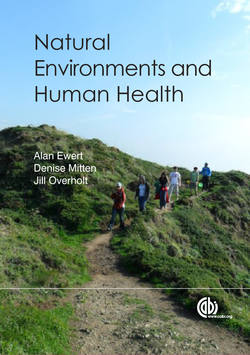Читать книгу Natural Environments and Human Health - Alan W Ewert - Страница 21
На сайте Литреса книга снята с продажи.
The History of WorldViews/Evolving WorldViews about Nature
ОглавлениеPerceptions of nature are driven by WorldViews and impacted by both culture and environment, and have varied depending on the historical time period. While throughout history there have been multiple WorldViews circulating at the same time, humans seem to have established periods where dominant WorldViews can be identified. The moral philosopher Denis Kenny (2001, in Eckersley, 2004) found that over human history there have been four substantially different cosmological stories. These include: (i) the enchanted universe in which the world is alive with forces, powers, and influences, often personified as gods; (ii) the sacred universe of Abrahamic religions in which the world is created by an all powerful, singular God; (iii) the mechanical universe of Newtonian physics, embodying a world that runs like clockwork according to a set of physical laws; and (iv) the organic universe of Einstein, relativity, and quantum physics in which the distinction between the material and spiritual no longer holds. As we examine major shifts in dominant WorldViews these four stories and others will be referenced.
For the purpose of this book, six major historical shifts have occurred in dominant society’s perceptions of nature or the collective stories about humans’ relationship to nature. These include: (i) first humans; (ii) sacred cycles; (iii) agricultural; (iv) early modernity; (v) industrial; and (vi) technological. During both the first humans and the sacred cycles stages, humans were primarily hunters and gatherers, shifting to an agrarian society about 10,000 years ago. The last four major shifts have occurred relatively recently compared with the notion that humans have been on Earth beginning sometime between 400,000 and 250,000 years ago, with each shift coming significantly faster than the previous shift (see Table 2.1). These stages are referenced with other geologic and archeological time periods. Different fields of study name time periods in regard to their particular frame of reference, which is confusing because the start and ending times vary, and even within disciplines there is often disagreement about start and ending times. Therefore, readers are encouraged to learn the relationships between the time periods and to place less emphasis on the exact dates.
